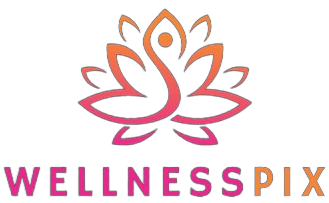Introduction:
Dandruff, the pesky white flakes that grace our shoulders, can be both embarrassing and irritating. While there are countless products promising dandruff relief, one household item has gained considerable attention for its potential effectiveness: apple cider vinegar (ACV). But does it truly live up to the hype? Let’s delve into the science behind using apple cider vinegar for dandruff and separate fact from fiction.
Understanding Dandruff:
Before we explore the potential benefits of apple cider vinegar, it’s essential to understand what dandruff is and what causes it. Dandruff is often the result of a combination of factors, including the overgrowth of a yeast-like fungus called Malassezia, oily scalp, dry skin, sensitivity to hair care products, and certain medical conditions like seborrheic dermatitis or psoriasis.
The Role of Apple Cider Vinegar:
Apple cider vinegar has been praised for its versatility and health benefits, ranging from aiding digestion to improving skin health. When it comes to dandruff, proponents suggest that the acidic nature of ACV can help restore the scalp’s pH balance, reduce the growth of Malassezia, and alleviate itching and flaking.
Benefits of Apple Cider Vinegar for Dandruff:
pH Balance: The scalp has a natural pH level, and disruptions to this balance can contribute to dandruff. ACV, with its acidic properties, may help rebalance the pH of the scalp, creating an environment less conducive to the growth of Malassezia.
Antimicrobial Properties: Research suggests that the acetic acid in apple cider vinegar exhibits antimicrobial properties, which may help combat the overgrowth of Malassezia and reduce scalp inflammation.
Scalp Health: Apple cider vinegar is believed to possess antifungal and antibacterial properties, which could promote overall scalp health by targeting the underlying causes of dandruff.
How to Use Apple Cider Vinegar for Dandruff:
If you’re considering incorporating apple cider vinegar into your dandruff treatment routine, here are some tips to keep in mind:
- Dilute ACV with water to reduce its acidity and prevent skin irritation. A common ratio is one part ACV to one part water.
- Apply the diluted solution directly to the scalp, focusing on the affected areas.
- Leave the solution on for a few minutes before rinsing thoroughly with water.
- Start with a small amount and gradually increase frequency based on your scalp’s response.
Potential Risks and Considerations:
While apple cider vinegar is generally considered safe for topical use, it’s essential to be mindful of potential risks, including:
Skin Irritation: Undiluted ACV can be harsh on the skin and may cause irritation or burning sensations. Always dilute it before use.
Allergic Reactions: Some individuals may be allergic to apple cider vinegar. Perform a patch test before applying it to your scalp.
Interaction with Hair Products: Apple cider vinegar may interact with certain hair care products or medications. Consult with a dermatologist or healthcare professional before using ACV, especially if you have existing scalp conditions or are on medication.
Conclusion:
Apple cider vinegar has garnered attention as a potential natural remedy for dandruff, thanks to its acidic properties and antimicrobial effects. While some anecdotal evidence supports its efficacy, more scientific research is needed to confirm its benefits definitively. If you’re considering using this, proceed with caution, and consult with a healthcare professional if you have any concerns. Ultimately, maintaining a healthy scalp involves a holistic approach, including proper hygiene, balanced diet, and suitable hair care practices.





Leave a Reply